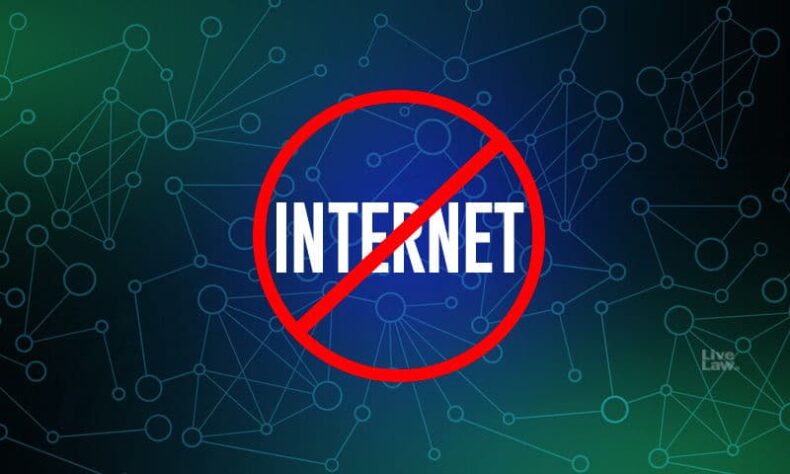
India has been experiencing a surge in internet shutdowns in recent years, with the country recording the highest number of such shutdowns globally. According to a report by Access Now, an international digital rights group, India accounted for over 75% of the world’s recorded internet shutdowns in 2020, with a total of 109 incidents reported.
India’s High Number of Internet Shutdowns Raises Concerns

Internet shutdowns are often used by governments to control the flow of information and prevent the spread of misinformation or rumors during times of unrest or protests. However, such shutdowns have significant economic, social, and human rights implications, particularly for marginalized communities who rely heavily on the internet for their daily activities.
The Indian government has faced criticism from various quarters, including civil society groups, international organizations, and tech companies, for its frequent use of internet shutdowns. Critics argue that such shutdowns are a violation of the right to freedom of expression and access to information, and have a detrimental impact on India’s economy and global reputation.
Despite the criticism, the Indian government continues to use internet shutdowns as a tool to maintain law and order in the country. However, the high number of shutdowns has led to calls for greater transparency and accountability in the use of this power, and for the government to explore alternative means of maintaining law and order that do not infringe on citizens’ fundamental rights.
For the fifth year in a row, India has topped the global list of internet shutdowns in 2022, according to a report released on Tuesday by Access Now, an international digital rights organization. The report also stated that there were at least 84 disruptions in India last year, accounting for approximately 58% of all documented shutdowns globally since 2016.
The report highlighted that authorities in India disrupted internet access at least 49 times in Jammu & Kashmir alone, including 16 back-to-back orders for three-day-long curfew-style shutdowns in January and February. Additionally, there were 12 shutdowns in Rajasthan, seven in West Bengal, and four each in Haryana and Jharkhand.
The report further noted that the authorities interfered with access during high-profile events such as protests, conflict, school exams, and elections. While the number of shutdowns was lower than in 2021, the Union government’s refusal to document and publish orders for them, and technical challenges in tracking, likely meant not all disruptions were recorded.
Access Now’s senior international counsel, and Asia Pacific policy director, Raman Jit Singh Chima, expressed concern over the frequent shutdowns in India, stating that it is a global shame that the country has shut down the internet more than any other country on earth. He further stated that these disruptions are jeopardizing the future of India’s tech economy and digital livelihood ambitions.
India Faces Calls for Greater Transparency and Accountability in Internet Shutdowns

The Keep It On coalition campaign manager, Felicia Anthonio, emphasized that governments wield internet shutdowns as weapons of control and shields of impunity. She added that authorities in India are working hard to exert control further over India’s online sphere, but slowly they are learning that the world is watching, and people are fighting back.
The Parliamentary Standing Committee on Communications and Information Technology this month asked the Department of Telecommunications (DoT) and the Union Ministry of Home Affairs (MHA) to ensure that the states and Union territories strictly comply with the rules and the Supreme Court’s guidelines when imposing telecom or internet shutdowns.
In 2020, the Supreme Court of India called access to the internet a fundamental right by extension as it pulled up the government for the telecommunications blackout in Jammu & Kashmir. The court said the blackout cannot go on indefinitely and that orders on blackouts must now be published with specific reasons and should be proportional to the concerns necessitating such suspension.
The parliamentary panel underlined the need for a mechanism to maintain a centralized database of all shutdown orders, as per its recommendation. The panel said no efforts have been made to implement the recommendation and that no centralized data is maintained either by DoT or MHA, and they are not aware of the number of internet shutdowns imposed by the states.
The panel sought a study to assess the impact of internet shutdowns and expressed concern over the frequent shutdown of the internet without any empirical study to prove the effectiveness of internet shutdowns in controlling law and order, civic unrest, etc.
The frequent internet shutdowns in India continue to be a cause of concern, both domestically and internationally. The government needs to ensure that telecom and internet shutdowns are only imposed as a last resort and that they comply with the Supreme Court’s guidelines. Additionally, there is a need for a mechanism to maintain a centralized database of all shutdown orders, and the impact of internet shutdowns needs to be assessed empirically to ensure that they are not causing more harm than good.













